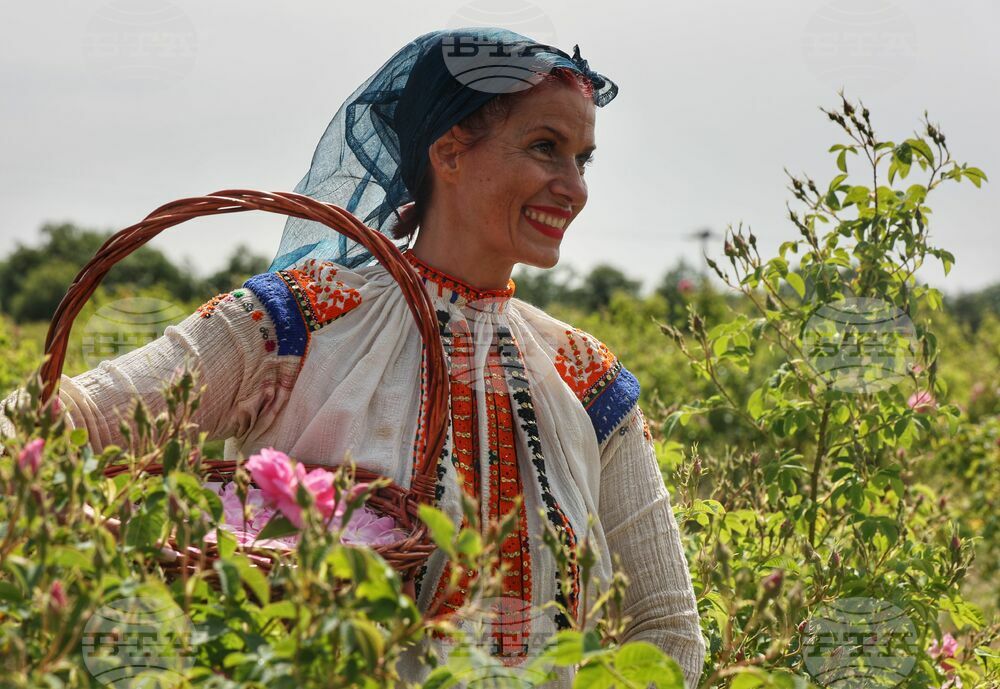site.btaSept. 25, 2014: European Commission Approves "Bulgarsko Rozovo Maslo" as New Protected Geographical Indication


On September 25, 2014, the European Commission entered the name "Bulgarsko rozovo maslo" (Bulgarian rose oil) in the register of protected designations of origin and protected geographical indications.
Here is BTA's Bulgarian-language report on the EC's decision:
Commission Approves "Bulgarsko Rozovo Maslo" as New Protected Geographical Indication
Brussels, September 25, 2014 (BTA) - The European Commission has approved the addition of a new Bulgarian product to the register of Protected Geographical Indication. "Българско розово масло" (Bulgarsko rozovo maslo) is an essential oil obtained by means of the steam distillation of flowers of the Damask rose (Rosa damascena Mill).
The quality of "Bulgarsko rozovo maslo" is guaranteed by compliance with the requirement that the rose blossoms be processed not later than 10-15 hours after they have been picked. About 3,500 kg of rose blossom is needed to obtain 1 kg of rose oil. The harvest takes place over a 20 to 30-day period and requires special skills: between several hours before daybreak and the early morning only blossoms with at least one open petal are picked with the sepals, without damaging the stem or the branches.
The specific and distinctive characteristics of "Bulgarsko rozovo maslo" are its rich aroma, its pale, yellowish-green colour, its very good fixative qualities, its long-lingering aroma, and its balanced composition of volatile substances and hydrocarbons. Its chemical characteristics are closely linked to the region's geographical traits and set it apart from rose oils produced in other parts of the world, the Commission says.
The Damask rose is traditionally grown in the Valley of Roses (Rozovata Dolina) in Central Bulgaria. The denomination will be added to the list of more than 1,200 products already protected, the Commission says.
An important later development
Being a major producer of rose oil, Bulgaria insists on preserving the traditional methods of growing essential oil crops in the EU so that farmers and seasonal workers can retain their livelihood. In 2023, the Bulgarian cabinet, MEPs, local authorities, rose growers and rose oil producers joined forces to protect rose production when the EC proposed amendments to the Regulation on Classification, Labelling and Packaging of Chemicals.
Sofia called for essential oils to continue to be classified under the current rules as substances and not as mixtures. The then Prime Minister Nikolay Denkov, a world-renowned scientist in the field of chemistry and physical chemistry, strongly defended Bulgarian rose oil and other natural essential oils at a European Council meeting on June 30, 2023. "When discussing whether something is harmful, we need to look not only at the substance, but at its concentration as well," Denkov said, adding that only then can a substance be described as dangerous or not. Noting that in the draft Regulation the word "concentration" is missing, he asked EC President Ursula von der Leyen to make sure that the text is made more accurate, because "it is not scientific, although it should be". His request was met with understanding.
/MR/
Additional
news.modal.image.header
news.modal.image.text
news.modal.download.header
news.modal.download.text
news.modal.header
news.modal.text























